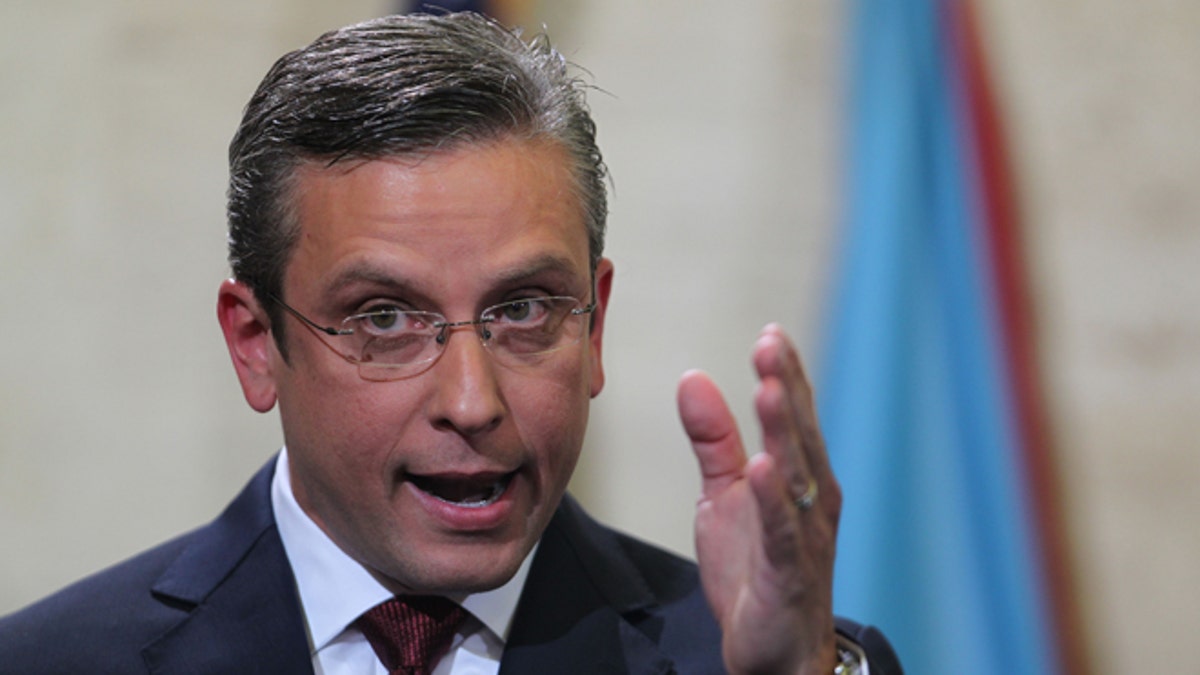
Puerto Rico Gov. Alejandro Garcia Padilla.
SAN JUAN, Puerto Rico (AP) – Puerto Rican officials and advisers on Monday held the first of what they say will be several meetings with creditors to explain why they believe it is necessary to restructure the U.S. territory's public debt amid a deepening economic crisis.
But specifics for bondholders were few. While saying "sacrifices" will be required by everyone involved, Government Development Bank President Melba Acosta said it was premature to propose details to investors because a credible recovery and fiscal adjustment plan is still being drawn up.
Once that plan is completed "the contribution required from each of our investors will be made clear," Acosta said at the New York offices of Citigroup.
The live-streamed meeting with bondholders came about two weeks after Gov. Alejandro García Padilla said Puerto Rico's outstanding $72 billion public debt is unpayable given the island's long recession.
García said he is seeking a payment moratorium from bondholders and renegotiations on debt. His administration also is pushing the U.S. Congress to allow Puerto Rico's government and its public agencies access to Chapter 9 bankruptcy if needed.
Acosta told investors the Caribbean island is "committed to developing a comprehensive package of reforms" to reverse more than a decade of persistent economic stagnation.
Because the economic recovery plan will take years to implement and span different administrations in the U.S. commonwealth, García's government will propose establishing a financial control board with the "tools necessary to compel compliance," she said.
The meeting included a presentation by Anne Krueger, a former International Monetary Fund official who co-authored a recent report titled "Puerto Rico - A Way Forward" that the island's government is using as a kind of blueprint.
Among other things, Krueger recommends exchanging some of Puerto Rico's debt for bonds with longer maturities and slashing subsidies to the University of Puerto Rico for savings of up to $500 million annually.
She said the Puerto Rican government's spiraling debt and fiscal situation is unsustainable and its cash balances are critically low. At the same, she noted, the island's labor force has been steadily falling as people move to the U.S. because the island has had "almost no economic growth for two decades."







































